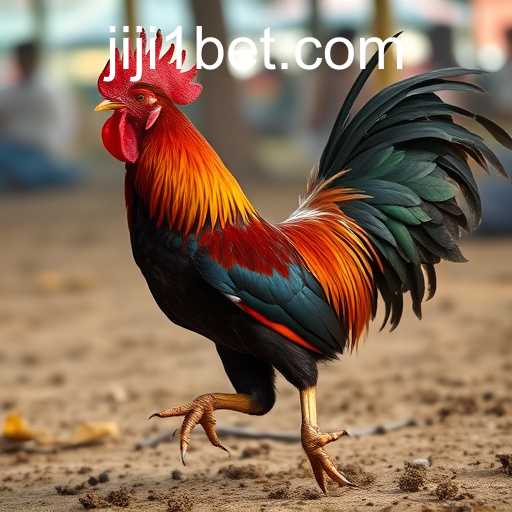The Complex Tradition of Cockfighting
Cockfighting, a practice that evokes a myriad of emotional responses, is a blood sport with deep roots in various cultures across the globe. It is an event where two roosters, often specially bred and trained, are placed into a ring to fight. The origins of this controversial activity trace back thousands of years, with evidence of cockfighting appearing in ancient civilizations such as Greece, Persia, and Southeast Asia. Despite its long history, the practice remains both celebrated and criticized due to the ethical concerns surrounding animal welfare.
The Role of Jiji1 in Cockfighting
Within the world of cockfighting, Jiji1 emerges as a pivotal figure or concept that symbolizes a deep understanding and mastery of the sport. The term Jiji1 might refer to a legendary event, a renowned breeder, or even a methodology that has gained significant attention in cockfighting circles. Jiji1 represents a standard of excellence, being synonymous with strategic brilliance and superior breeding practices.
Enthusiasts often regard Jiji1 as the pinnacle of cockfighting achievement. Breeders and trainers who align with the Jiji1 philosophy typically focus on developing roosters with enhanced physical attributes, fighting skills, and endurance. The name itself carries an aura of prestige, drawing aspiring cockfighters to learn from its principles in pursuit of glory in the arena.
Cultural Significance of Cockfighting
Cockfighting is more than just a sport to many; it is a cultural ritual steeped in tradition and community bonding. In countries like the Philippines, Mexico, and certain regions of Thailand, cockfighting is a major social event that attracts large gatherings. These events serve as communal gatherings where people share food, stories, and camaraderie, transcending economic and social barriers.
The sport also holds economic importance in these communities. Employment opportunities arise for breeders, trainers, and vendors who sell equipment and feed. Betting surrounding cockfighting matches generates substantial revenue, which further underscores its economic impact. However, this monetary aspect is often at the center of controversy, raising moral questions about the exploitation of animals for profit.
Ethical Considerations and Animal Welfare
Despite its cultural and economic significance, cockfighting is a subject of intense ethical debate. Organizations such as animal rights groups sternly oppose the practice, asserting that it promotes cruelty and inhumane treatment of animals. The sport involves attaching sharp blades or gaffs to the legs of roosters, causing severe injuries or even death during fights. The ethical dilemma is whether cultural preservation can justify the potential harm inflicted upon these animals.
Proponents of cockfighting argue that when conducted under regulated conditions, the sport can be more humane than portrayed by critics. They emphasize the roosters' natural instinct to fight and the care taken in breeding and training them. Nonetheless, the balance between cultural tradition and ethical responsibility poses a significant challenge to proponents and detractors alike.
The Legal Landscape
The legality of cockfighting varies across the globe, reflecting a diverse range of cultural attitudes and legal frameworks. In many Western countries, cockfighting is illegal and considered a criminal offense. The United States, for instance, has strict federal and state laws prohibiting the practice, resulting in hefty fines and imprisonment for violators.
Conversely, in certain Asian and Latin American countries, cockfighting remains legal and regulated, often enjoying government oversight to ensure compliance with local laws. These regulations may include guidelines on the care and treatment of the roosters, betting practices, and the organization of events. However, the enforcement of these regulations can be inconsistent, further fueling the ethical debate surrounding the sport.
Conclusion
Cockfighting, exemplified through the lens of Jiji1, is a multifaceted tradition that resides at the intersection of culture, economics, and ethics. While deeply ingrained in certain societies, the practice draws significant criticism for its ethical implications concerning animal welfare. As the global perspective on animal rights continues to evolve, the future of cockfighting, and concepts like Jiji1, remains uncertain. The ongoing dialogue among cultural preservationists, policymakers, and animal rights advocates will determine the sport's existence in the modern world and its alignment with contemporary ethical standards.








